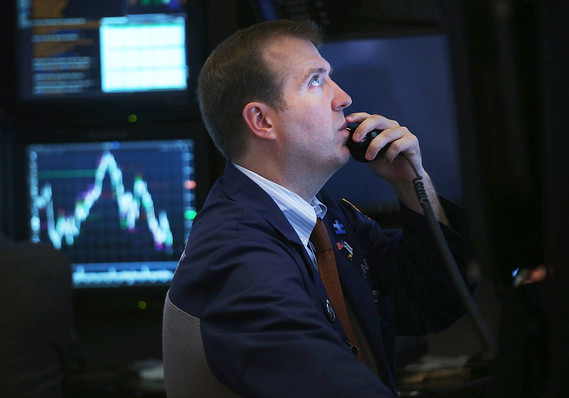
World Bank warns of risks for Russia’s economy
March 26, 2014
Top global risks you can’t ignore
March 28, 2014BRUSSELS —
Calling it a global “moment of testing,” President Barack Obama appealed to Europeans on Wednesday to recommit to the war-won ideals of freedom and human dignity, declaring that people voicing those values will ultimately triumph in Ukraine.
Painting a historical arc across the major global clashes of the last century and beyond, Obama said young people born today come into a world more devoid of conflict and replete with freedom than at any time in history — even if that providence isn’t fully appreciated. He urged the 28-nation NATO alliance to make good on their commitments to the collective security that has fostered prosperity in the decades since the Cold War concluded.
“We must never forget that we are heirs to a struggle for freedom,” Obama said, adding that the Ukraine crisis has neither easy answers nor a military solution. “But at this moment, we must meet the challenge to our ideals, to our very international order, with strength and conviction.”
Drawing on modern struggles, like gay rights, as well as the ethnic cleansing and world wars of a bygone era, Obama sought to draw a connection between the U.S. experiment in democracy and the blood spilled by Europeans seeking to solidify their own right to self-determination.
“I come here today to say we must never take for granted the progress than has been won here in Europe and advanced around the world,” Obama said.
Indeed, the Europe that Obama confronted on Wednesday was taking little for granted.
Calm on the continent has been upended by Russian President Vladimir Putin’s foray into the Ukrainian region of Crimea. Defying the global community, Moscow annexed that peninsula this month, stoking fears among Russia’s other neighbors as Europe was plunged back into an East-West mentality that many had thought was left behind at the end of the last century.
“If the Russian leadership stays on its current course, together we will ensure that this isolation deepens,” Obama said. At the same time, he acknowledged that military force would not dislodge Russia from Crimea or prevent further encroachment, holding out the allies’ combination of pressure and an open door to diplomacy as the path to peace.
In his remarks at a cultural center in Brussels, Obama sought to shape a unifying theme out of a weeklong foreign trip whose original purposes have been eclipsed by a burst of diplomatic maneuvering over the conflict with Russia. In stops so far in the Netherlands and Belgium, Obama has sought to coordinate the European and American response to Putin, despite some Europeans’ misgivings about enacting anti-Russian sanctions that could backfire and the American public’s reluctance to embroil the U.S. in another faraway conflict.
Earlier Wednesday, Obama pledged to defend U.S. allies during a meeting with NATO’s secretary general, and on Monday he held an emergency meeting with leaders of major economies focused on tightening economic pressure on Moscow.
At home, Obama has been accused of neglecting Europe in favor of an Asian focus and high-wire Mideast diplomacy. But in the city that is home to NATO headquarters and the European Union, Obama warned against yielding to isolationism or avoiding direct engagement in far-off crises. After all, America’s economy and borders aren’t deeply threatened by Russia’s incursion into Ukraine and annexation of Crimea, Obama said.
“If we defined our interests narrowly, if we applied a cold-hearted calculus, we might decide to look the other way,” Obama said. “But that kind of casual indifference would ignore the lessons that were written in this continent.”
A day earlier, Obama dismissed Russia as a mere “regional power” that was threatening its neighbors “not out of strength, but out of weakness.” He said that as president, he worried more about a nuclear device in Manhattan than he did about Russia.
Obama came to Europe intent on shoring up commitments from allies, but also to make a larger point about European security a quarter-century after the fall of the Iron Curtain. In a nod to the U.S. perception that America has borne too much of the burden for NATO members’ security, Obama said he wants to see every NATO partner “chip in” for mutual defense. He said members should examine their defense plans to make sure they reflect current threats.
“I have had some concerns about a diminished level of defense spending by some of our partners in NATO,” Obama said. “The situation in Ukraine reminds us that our freedom isn’t free.”
Another reminder of the cost of freedom came earlier Wednesday during a solemn pilgrimage to a World War I cemetery where hundreds of fallen U.S. troops are buried. Followed by the stirring sound of a bugler playing Taps, Obama joined Belgian Prime Minister Elio Di Rupo and King Phillipe laid wreaths at the memorial at Flanders Field American Cemetery and Memorial in northwest Belgium.
“To all who sleep here, we can say we caught the torch, we kept the faith,” Obama said, invoking language from “In Flanders Fields,” the famous war poem.
 Enjoy 8 weeks of unlimited access to seattletimes.com for $1. Subscribe today!
Enjoy 8 weeks of unlimited access to seattletimes.com for $1. Subscribe today!



